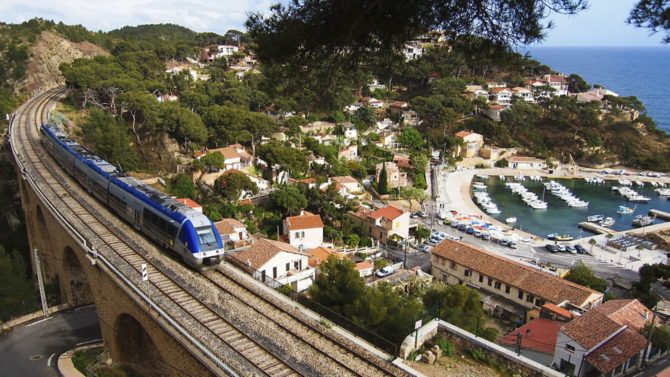10 insider tips for travelling by train in France

From validating your train ticket to booking online, here are 10 insider tips to help you save time and money on train travel in France
Take the taxi in Paris
If you need to change stations in Paris and have too much luggage to carry on the métro, don’t worry. A taxi from the rank will deliver you to your onward station for around €10-€20. For about double, you can pre-book with companies such as City Airport Transfers (don’t let the name fool you, it does stations, too), where a driver meets you at the platform with a name card.
Keep it local
Many local journeys cost just €5-€20, even if you are travelling quite a distance. You don’t need to book in advance, so you stay flexible and it won’t cost you more. “For local journeys such as Paris-Versailles or Nice-Cannes, you just turn up, buy a ticket and hop on,” says Mark Smith, of Seat 61. “You can buy tickets from the multi-lingual self-service machines at main stations.”
_____________________________________________________
Don’t miss:
31 French phrases to use on public transport
Iconic train journeys in France
_____________________________________________________
Plan ahead
Tickets for Eurostar go on sale 120 days ahead of your date of travel, and most French trains go on sale 90 days ahead. However, if combining Eurostar and TGV, it can be better to wait until both services are on sale, so that you can take advantage of a Connection Fare, when you book in one go. Not only does this make the journey cheaper, it also means that the two trains count as one journey. This is useful if trains are delayed, as your ticket will always be valid for onward later services.
iDTGV
On key routes, SNCF operates one or two daily trains branded iDTGV. “These are simply special TGVs with their own cheap fare structure and bookings which open 120 days ahead, designed to compete with budget airlines,” says Smith. “iDTGVs do not appear on Rail Europe sites, only on voyages-sncf.com, trainline.eu or their own website idtgv.com. These trains run coupled to a regular TGV, which is why two trains appear in the search results with identical departure times but different fares and logos.”
_____________________________________________________
Don’t miss:
Tips for using French public transport
_____________________________________________________
Use a booking agent
For more complicated journeys, you can ask an expert rail-booking agent to find the most suitable journey options for the best prices. Experienced agents in the UK include Ffestiniog Travel, Rail Canterbury and International Rail.
Don’t forget the phone
Use the phone as well as the web; this will help you to find independent fares or rail-ski packages that aren’t obvious to find online. Booking websites and rail company call centres have access to the same fares, but by phoning up you can frequently benefit from the expertise of staff in finding what you want. So start your research online, but then pick up the phone.
Family discounts
For travel from the UK to the Alps, infants under four can travel free on Eurostar and European trains (but without a reserved seat). Independent fares to the Alps for children aged 4-11 are 30-50 per cent cheaper than for adults, depending on the journey. A Forfait Bambin, available on the French network, gives a child up to 11 a reserved seat for a flat fee of around €9. Forfait Bambin is sold only on certain sites, such as trainline.eu, but not on uk.voyages-sncf.com.
Validate your ticket
You must stamp or composter your ticket at one of the bright yellow machines inside every French train station before boarding the train. Failure to do so will result in your receiving a hefty fine.
Table seats
Table seats enable you to make more of the journey, especially if there is a group of you – such as for playing cards. You can request table seats when booking, although both TGVs and local trains have a high proportion of table seats in any case. In first class, they are all table seats.
Take a picnic
Enjoying a picnic during a train journey is something of a French tradition. Pack provisions, so that once on board you can comfortably enjoy a meal as the scenery glides by. There’s nothing like cheese, saucisson and the sound of a wine bottle being opened at 300km/h.
Like this? You might also enjoy:
How many of France’s major attractions have you visited?
Share to: Facebook Twitter LinkedIn Email


